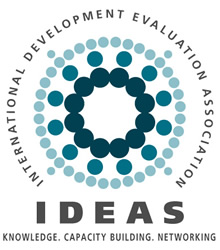IDEAS proposed and adopted a Publication and Dissemination Strategy (PDS) in 2016 to provide its members with a wider range of opportunities for disseminating, exchanging and developing ideas, theories and concepts about evaluation. The IDEAS Publication and Dissemination Policy was published in July 2017.
The strategy allows paying members to publish original work on international development evaluation-related topics to meet the following short-term objectives:
- Give visibility to practitioners and decision-makers with no prior track of publications;
- Disseminate evaluation-related ideas on topics and/or countries rarely mentioned in mainstream peer-reviewed evaluation literature;
- Encourage IDEAS members to document and write about their own evaluation practice on a more regular basis (not only in response to the call for conference proposals launched every two years before the IDEAS General Assembly);
Use the publication of articles and other items posted on the IDEAS website as the entry point for further dialogue and mutual intellectual and professional enrichment among the Association’s members.
Likewise, it is expected that the implementation of the publication policy will contribute, in the long run, to advance and further IDEAS members’ practice of development evaluation, thanks to the strengthening of their capacity and their uptake of innovative evaluation methodologies.
On 2019 IDEAS obtained the rights of a Publisher. In order to standardize the publications, a Reference Style Guide was built and applied in the first book of the series Evaluation for Transformational Change.
IDEAS Publication Policy


